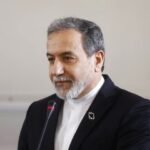By Mohammad Tarique Saleem
The recent bye-election results in Uttar Pradesh reveal a stark disparity between declared outcomes and public perception. Officially, the Bharatiya Janata Party (BJP) secured seven seats, while the Samajwadi Party (SP) managed only two. However, many observers argue that a free and fair election might have reversed this outcome, with SP winning seven and BJP only two seats. Allegations of voter suppression, including reports of police intimidation targeting Muslim voters, and potential tampering with Electronic Voting Machines (EVMs) have sparked concerns about the erosion of democratic processes.
The election atmosphere in Uttar Pradesh has been clouded by accusations of unfair practices. Reports suggest that Muslims were barred from voting, allegedly at gunpoint, by law enforcement. This raises serious questions about the impartiality of state machinery under the BJP-led government. Moreover, suspicions of EVM tampering further undermine public trust. The BJP’s perceived reliance on such tactics suggests that the party may be grappling with declining credibility and waning public support.
If these allegations hold weight, the Samajwadi Party faces an uphill battle in its pursuit of power in Uttar Pradesh. The situation demands urgent attention from opposition parties and civil society to ensure electoral integrity. Failure to address these issues could jeopardize the democratic foundation of the state.
In response to these challenges, the opposition India Alliance, led by parties like the Samajwadi Party, has showcased resilience. Heartfelt congratulations are due to SP’s winning candidates, Naseem Solanki from Sisamau and Tej Pratap Yadav from Karhal, whose victories symbolize hope amidst adversity. These wins highlight the strength of collective efforts and voter vigilance. While SP won two seats, many view the election as a moral victory, exposing the alleged manipulation of democratic processes.
This unity among India Alliance members has delivered notable successes in other states as well. The Trinamool Congress (TMC), under Mamata Banerjee’s leadership, swept the West Bengal by-elections, demonstrating that BJP’s tactics faltered in the absence of a favorable state government. Similarly, India Alliance’s wins in Karnataka, Punjab, and Jharkhand underline the importance of unity and strategic awareness in countering BJP’s influence.
The contrasting outcomes in BJP-governed and opposition-ruled states offer valuable insights. While BJP has faced allegations of “fraud politics” in states it governs, its failures in states led by opposition parties showcase the importance of vigilance and public awareness. The opposition must continue to expose electoral malpractice and strengthen its strategies for upcoming contests. Public awareness and active participation are critical in countering electoral deceit. The responsibility lies with both political leaders and citizens to ensure transparency and fairness.
Efforts to safeguard the democratic process should include reforms in electoral oversight and robust mechanisms to address voter suppression and EVM-related concerns. India Alliance’s victories in states like Karnataka, Punjab, and Jharkhand and its strong performance in Rajasthan and Madhya Pradesh signify a growing momentum. The historic win of Priyanka Gandhi Vadra in Wayanad further exemplifies the potential of positive, people-centric politics. The upcoming elections will test the resilience of Indian democracy. A united opposition, vigilant voters, and proactive reforms are essential to overcoming the challenges posed by alleged conspiracies and manipulations. As awareness grows, the BJP’s strategies may face greater resistance, paving the way for fairer elections and a stronger democracy.









